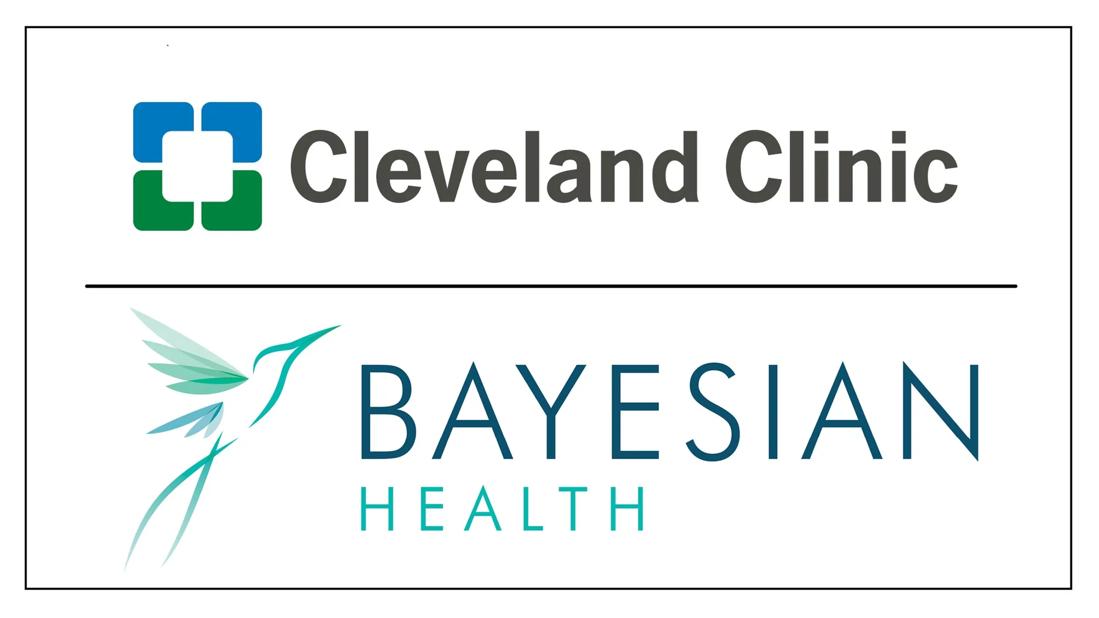
Cleveland Clinic Announces the Expanded Rollout of Bayesian Health’s AI Platform for Sepsis Detection
Cleveland Clinic is expanding its use of Bayesian Health’s AI-enabled clinical intelligence platform across its U.S. hospitals this year, to assist clinicians in the early detection and treatment of sepsis.
The AI sepsis detection software is already implemented at thirteen Cleveland Clinic hospitals, and Cleveland Clinic plans to roll out the platform to its hospitals in Ohio and Florida in 2025.
The organizations also will work together to co-develop additional AI modules to help clinicians deliver safe, timely, high-quality patient care for other critical conditions.
“Artificial intelligence is demonstrating the ability to support clinicians and improve patient outcomes,” said Rohit Chandra, Ph.D., Chief Digital Officer at Cleveland Clinic. “This innovative platform has the potential to help healthcare providers identify complicated conditions such as sepsis earlier by providing real-time insights that are embedded directly into workflows."
“We’re thrilled to be partnering with Cleveland Clinic to help transform how clinicians care for patients in an increasingly complex hospital environment,” said Suchi Saria, Ph.D., Founder & CEO of Bayesian Health. “Bayesian augments care teams with real-time clinical awareness and streamlined workflow that helps set care in motion, so they can act earlier, reduce cognitive overload and deliver safer, more efficient care.”
Sepsis is a condition that occurs when the body has an overwhelming immune response to an infection and can lead to tissue damage, organ failure and death. According to the CDC, at least 1.7 million adults in the U.S. develop sepsis each year and thousands die from it. It is a leading cause of in-hospital death. Timely sepsis identification and clinical intervention are known to improve patient outcomes and survival.
Sepsis impacts the whole body and has a variety of symptoms based on the patient’s unique clinical history. Because symptoms aren’t always the same, sepsis diagnosis can be difficult. Typically, sepsis diagnosis is made through a combination of physical exams, lab tests, and imaging. When detected early enough, sepsis can be treated effectively with antibiotics.
Bayesian’s software integrates into the electronic medical record and analyzes vast amounts of medical data, such as laboratory tests, vital signs and clinical notes, in real time to determine if a patient is at risk of developing sepsis. The platform embeds sepsis identification insights into clinical workflows to prioritize at-risk patients for timely intervention.
Two Cleveland Clinic hospitals participated in pilot programs of the software, and data has shown that the tool helped to identify more sepsis cases, reduced false alerts and alerted healthcare providers earlier, providing an opportunity to accelerate time to therapy. At one of those sites, Cleveland Clinic Fairview Hospital, the software was used on more than 3,330 patients in 2024 and the first part of 2025. Compared to legacy tools that rely on static systemic inflammatory response and organ failure criteria, pilot data from Fairview's pre-clinical alert comparison demonstrated significant enhancements in alert performance. Notably, there was a ten-fold decrease in false alerts, a 46% increase in identified cases, and a seven-fold rise in cases alerted before antibiotic administration.
“Over the past several years, Cleveland Clinic has focused heavily on sepsis detection and early treatment through a variety of initiatives, including a dedicated sepsis emergency response team at our Main Campus,” said Raed Dweik, M.D., Chief of the Integrated Hospital Care Institute. “Through these efforts, we’ve been able to significantly improve patient outcomes and survival rates. This new technology is another tool to allow our clinicians to provide the most advanced, high-quality care to our patients.”
Bayesian Health’s clinical awareness AI platform is based on nearly a decade of academic research. Bayesian’s approach to AI takes into consideration the diversity of the patient population, the unique ways in which doctors and nurses deliver care on the front lines, and the characteristics of each health system, allowing it to be more accurate and timely, which enables provider trust and adoption.
Prior to working with Cleveland Clinic, in July 2022, Bayesian Health published three papers in Nature Medicine – using data from 760,000+ patient encounters (17,500+ with sepsis) across five hospitals in both academic and community-based hospital settings with 2,000+ providers using the software. This research showed accurate early detection (1 in 3 cases were physician confirmed) at high sensitivity (82%) and significant lead time (5.7 hours earlier). This model performance combined with high provider adoption (89%) led to an 18% relative reduction in mortality and meaningful impacts to hospital length of stay and ICU utilization.
Cleveland Clinic has invested in Bayesian Health and may benefit from the future commercialization of this technology.
